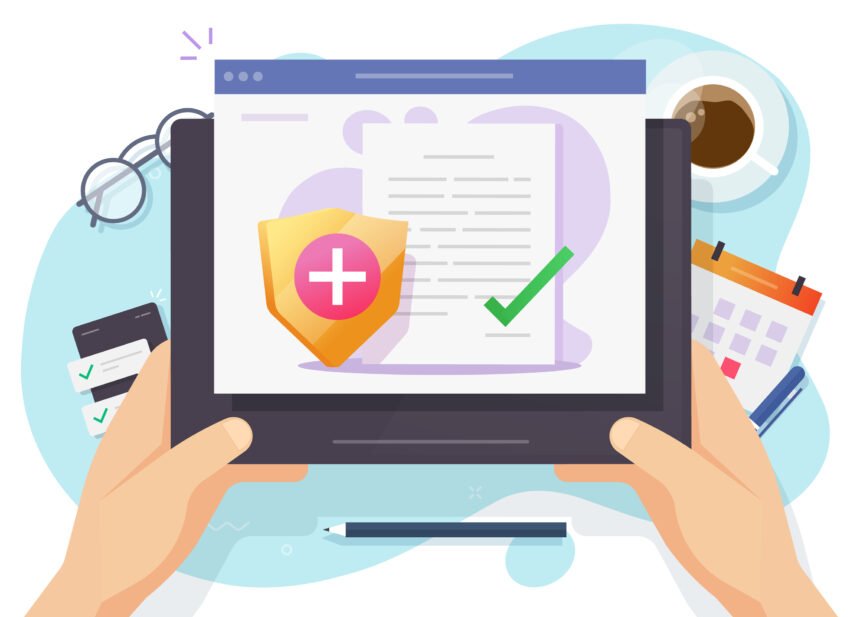Advances in technology have been helpful to the healthcare sector. Also, technology allows healthcare providers to streamline their systems for better customer service. Now, the healthcare industry produces and holds bouts of patient data. However, this patient data needs to be protected to preserve confidentiality.
Meanwhile, based on the recent Health Insurance Portability and Accountability Act (HIPAA) and Health Information Technology for Economic and Clinical Health Act (HITECH) guidelines, healthcare providers are expected to prioritize securing the patient’s protected health information (ePHI).
These guidelines outline how service providers are supposed to go about protecting client confidentiality and guarding themselves against data loss. If a healthcare provider ignores any of these guidelines or experiences a breach, they could be fined on the grounds of negligence.
A security breach could lead to undesirable consequences because sensitive information may end up in the hands of cybercriminals. Therefore, securing ePHI is vital. That said, below are some tips to safeguard patient health information.
1. Educate Your Staff
Due to the potential for human error, humans pose a serious security risk in any field. Therefore, it would be best to invest in training medical staff on the importance of security and ePHI compliance.
This training should equip them with the knowledge required to make smart decisions that don’t compromise the safety of patient health information. Forewarned is forearmed.
2. Accessibility Controls
You can store all kinds of files and information in a healthcare database. However, you may consider putting solid accessibility controls as a security measure. This will restrict access to patient information and specific applications within the database.
For example, doctors can be given access to information relevant only to the job they’re doing. Providing unrestricted access to too many people could open doors for vulnerabilities to emerge within the system. Consequently, this makes it difficult to trace where the weak link is.
With solid accessibility controls, you limit the probability of a significant data breach since only authorized users will have access to specific patient information. It would be best to use multi-factor authentication for verification since it’s more secure.
3. Device Security Policy
With the advent of technology, almost everyone uses an internet-enabled device. These devices allow most organizations to go paperless and improve communication channels. However, IT staff should be mindful of the endpoints and potential weaknesses that their systems might have to set preventative measures.
Therefore, every organization ideally needs to set up security policies that guide how employees should use the networks and IT infrastructure in the organization. If employees don’t use their devices cautiously, they could unknowingly put an entire organization under threat.
Nowadays, it’s important to pay attention to all the things to look out for to prevent scams or phishing attacks. Hence, this security policy should inform staff about what they should watch out for and give tips on how to protect themselves.
4. Data Encryption
The HIPAA recommends that all organizations use data encryption to protect their files. Given the extent to which cyberattacks are occurring, it’s only sensible for any healthcare provider to consider data encryption. Encrypting ePHI ensures that the data is kept secure at all times.
On the other hand, data encryption makes it much harder for cybercriminals to intercept any information since they’d need to use a code to decrypt it. It’s also wise to implement accessibility controls since you can restrict access to only a few selected individuals—especially when dealing with confidential information.
5. Third-Party Security
It’s common for any healthcare organization to work with third-party service providers. However, in the interests of security, it would be best to conduct a security assessment for all the third parties you work with.
The reason is that it could also put your organization at risk if they don’t have a robust security system. If a third party suffers a breach, it could also put your organization at risk of being infiltrated.
While you may not be able to do much about the robustness of the service provider’s security or lack thereof, you can play your part by encrypting all the data you share with your partner. Furthermore, it would be best only to provide things or access to information they need to perform their tasks.
6. Risk Analysis
Conducting a risk analysis allows healthcare providers to identify areas of weakness or vulnerability in their systems. Often, these weak areas go unnoticed because everything seems to be intact.
However, without regular assessments, you might miss some critical gaps. A risk analysis should be your first point of call if you want to improve your system. Additionally, routine checks can be added to your regular assessments, too.
7. Shredding
If your company collects paper files with PHI, it’s best to shred the paper files that you no longer use. Only keep those files you need and ensure that those few files are kept very secure. Nowadays, some healthcare providers use cloud or digital storage to store all their files. Besides, going paperless allows you to store and retrieve ePHI easily.
Conclusion
Ideally, every healthcare organization should comply with the various protection of PHI regulations. It’s in the best interest of the organization and the patients it serves. Remember, patients trust their healthcare providers with their private information.
Healthcare providers cannot afford to have weak cyber defenses in this day and age because cyberattacks are on the rise. Healthcare providers can use the above tips as a starting point for securing their PHI systems.







